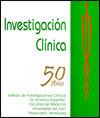腹腔镜和Seldinger技术治疗伴发胆结石和胆总管结石。回顾性研究。
IF 0.1
4区 医学
Q4 MEDICINE, RESEARCH & EXPERIMENTAL
引用次数: 0
摘要
摘要本研究旨在确定微创联合入路治疗胆总管结石和胆总管结石的疗效和安全性。从2018年11月到2021年3月,30名患者参与了这项回顾性研究,比较了两种治疗合并胆囊结石和胆总管结石的方法。该研究包括两组:A组的15名患者接受了腹腔镜和Seldinger联合技术,以完全清除结石,保留胆囊原位。B组15例患者行腹腔镜胆囊切除术和胆总管切开取石T管引流术。比较两组的手术成功率、手术相关并发症、住院时间、住院费用和患者满意度。两组患者的一般特征没有差异,所有手术都成功完成。与B组相比,A组患者的手术时间更短(84 vs.105分钟),失血量更少(10 vs.28毫升),费用更低,术后恢复时间更短。B组中有一名患者出现胆汁渗漏。A组的满意率为93%,而B组为80%。联合使用腹腔镜和Seldinger技术对合并胆囊结石和胆总管结石的患者进行完全取石是安全和成功的。本文章由计算机程序翻译,如有差异,请以英文原文为准。
Laparoscopic and Seldinger techniques for the treatment of concomitant gallstones and choledocholithiasis. A retrospective study.
Abstract. This study aimed to determine the efficacy and safety of a mini-mally invasive combined approach for concomitant stone clearance of choleli-thiasis and choledocholithiasis. FromNovember 2018 to March 2021, 30 pa-tients were enrolled in this retrospective study that compared two methods of treating combined cholelithiasis and choledocholithiasis. The study comprised two groups: 15 patients in Group A underwent combined laparoscopic and Seldinger techniques for complete stone clearance, retaining the gall bladder in situ. In Group B, 15 patients underwent laparoscopic cholecystectomy and choledocholithotomy with T-tube drainage. The rates of successful completion of the operations, procedure-related complications, length of hospitalization, hospital cost, and patient satisfaction were compared between the two groups. The two groups had no differences in general patient characteristics, and all procedures were successfully completed. Compared to Group B, patients in Group A had a shorter operative time (84 vs. 105 min), less blood loss (10 vs. 28 mL), were less expensive, and had a shorter postoperative recovery. A single patient in group B developed bile leakage. The satisfaction rate was 93% in Group A, in contrast to 80% in Group B. The combined use of laparoscopic and Seldinger techniques to achieve complete stone removal in patients with con-comitant cholelithiasis and choledocholithiasis was demonstrated to be safe and successful.
求助全文
通过发布文献求助,成功后即可免费获取论文全文。
去求助
来源期刊

Investigacion clinica
MEDICINE, RESEARCH & EXPERIMENTAL-
CiteScore
0.20
自引率
50.00%
发文量
2
审稿时长
>12 weeks
期刊介绍:
Estudios humanos, animales y de laboratorio relacionados con la investigación clínica y asuntos conexos.
 求助内容:
求助内容: 应助结果提醒方式:
应助结果提醒方式:


